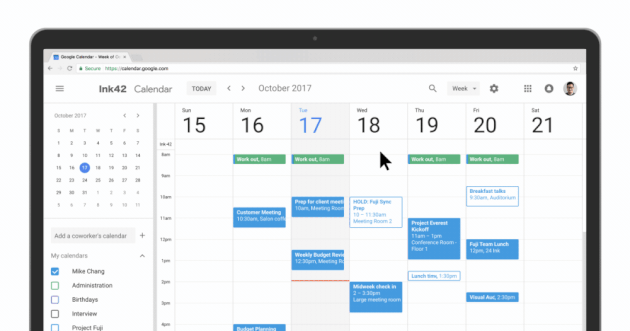Before I found my own YuSMP Group team, I had spent five years in leadership positions at various companies. Now I share my management experience and recently published an article 7 qualities of an effective manager.
I am convinced that the effectiveness of a manager lies in clear planning of their own time and the actions of employees. And this applies to any level of management: from the CEO to the middle manager.
I have identified several types of tasks that require a different approach:
- meetings;
- regular operational tasks;
- non-regular operational tasks
- strategic tasks.
Meetings
At work, I have to communicate a lot: with clients and with employees, in the office, and online. I mark all meetings in my calendar (I use Google calendar) and personally invite participants (I send a message to chats or add them to the service). It is important for me to make sure that everyone knows where, when, and at what time we are going to discuss the tasks.
For each meeting I write an agenda, for myself, I decompose the meeting into time segments and control the participants so that the topics of conversation do not drag on. Based on the results, I always write a FollowUP about the agreements: I assign tasks and deadlines to the participants.

Regular operational tasks
These are repetitive tasks that need to be done at a certain frequency: every day, week, month, quarter, and year.
- Every day I review the goals and objectives of employees, it helps me to see the details of the direction and understand what is happening with these processes.
- Every week, together with the team, I conduct a reconciliation of project deadlines and budgets. If necessary, we take measures to rectify the situation.
- Every month I plan goals, make a budget, and analyze progress and results for the period.
- Every quarter I review all the projects and their progress. If I see that some activity does not bring the expected results, and there are no prospects for improvement, then I close this project.
- Once a year we hold strategic sessions. I use them to track how well the company is moving about its mission and global goals. Whether the right projects are selected for this, whether you need to connect something else.
Non-regular operational tasks
I try to delegate such cases to responsible persons or to perform them myself. For example, if I need to communicate with partners to attract traffic, I pass this task to the marketing director. Another example of Non-regular operational tasks is the development of a motivation system for contractors, which I entrust to the sales director. In any case, I monitor the progress of such tasks and monitor them.
Strategic tasks
As a manager, I set them for myself and the team. Here I determine where and at what speed we are moving, what projects I need to launch to bring the company to a qualitatively new level. I also include the following strategic tasks: connecting new lead generation and sales channels, analyzing and adjusting the customer's path, refining the sales funnel, and developing operational processes to reduce the company's costs.
I have collected this pool of tasks for several years and now it helps me to keep the processes in the company in focus. I may have missed something, so I will be happy to have suggestions and questions.